Main To vs. Too Takeaways:
- To is typically a preposition or infinitive verb.It shows a relationship between words or elements.
- Too is always an adverb.
- It can also indicate an excessive amount. Therefore, when you need a word that means more, use too with more ‘Os’.
- What’s more, too can be a synonym for really, also, and in addition.
- When you aren’t sure whether to use to vs. too, replace the word with really, also, or in addition. If the sentence still makes sense, too is correct.
- Too can also indicate agreement. Since you need at least two people to come to an agreement, think of the two ‘Os’ in too.
- Two is always a number.
To vs. too: which one is correct? And what about two? We break things down in this super easy guide.
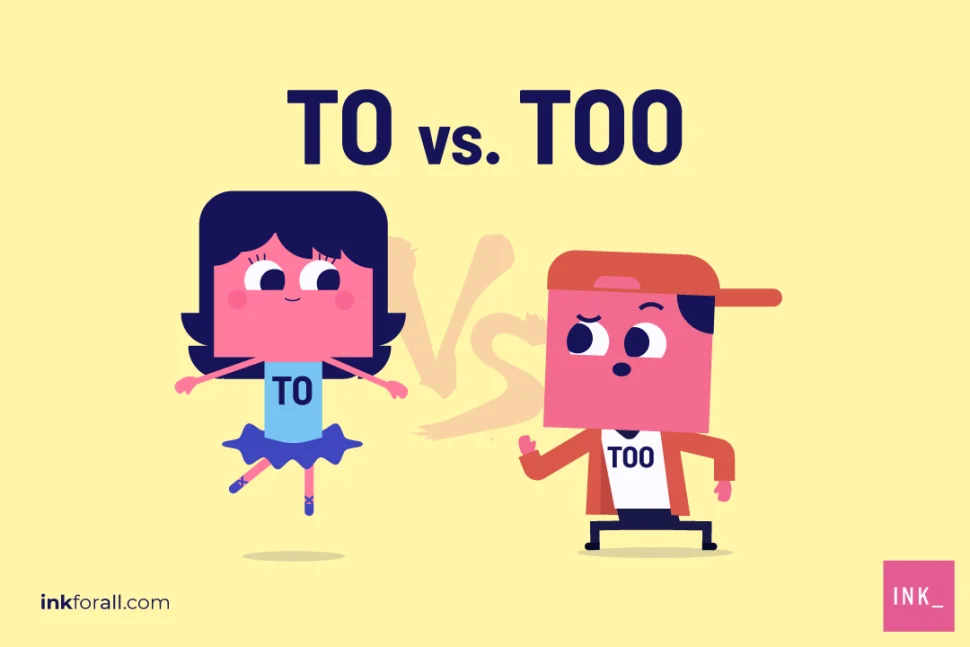

To vs. Too vs. Two
On one hand, to (one ‘O’) shows the relationship between two words. Itcan be a preposition or an infinitive verb that joins words or clauses together. When it comes before a verb, it helps form an infinitive verb, or a verb that is not conjugated. Sometimes to also acts as an adverb, but this is rare. On the other hand, too (two ‘Os’) is always an adverb. It has several meanings and uses. First, too means also. In other cases, it refers to an excessive amount, such astoomuch. What’s more, too can indicate agreement, such as me too. Conversely, two is always a number. It’s how we write out the number 2.
How do you Remember the Difference Between To and Too?
Here is the easiest way to remember the difference between to and too: use the ‘O’ trick. Too can indicate something excessive or be a synonym for also or in addition. Remember that when a word means more, you need more ‘Os’. Similarly, it takes at least two people to agree on something, so you need two ‘Os’ to express that (I think sotoo.). Another trick is to replace the word with really, very, or also. If the sentence still makes sense, the use too. If not, you probably should use to.
On the other hand, since to is a preposition or infinitive verb that links parts of a sentence together, think of the one ‘O’ as one link. When you need a link to show direction or to show that a verb is an infinitive, use to.
Do you Need a Comma Before or After too?
There really is no fixed grammar rule when it comes to using commas with the adverb too. Because the overall meaning usually depends on the writer’s intent, adding a comma before too is more of a stylistic or personal choice. That said, if your sentence would be clearer with a comma, use one. All in all, if too functions as an interrupter or nonrestrictive clause that appears in the middle of the sentence, you can offset it with commas (I, too, love pizza). However, if too appears at the end of the sentence and means also or in addition, including the comma after too is up to you.
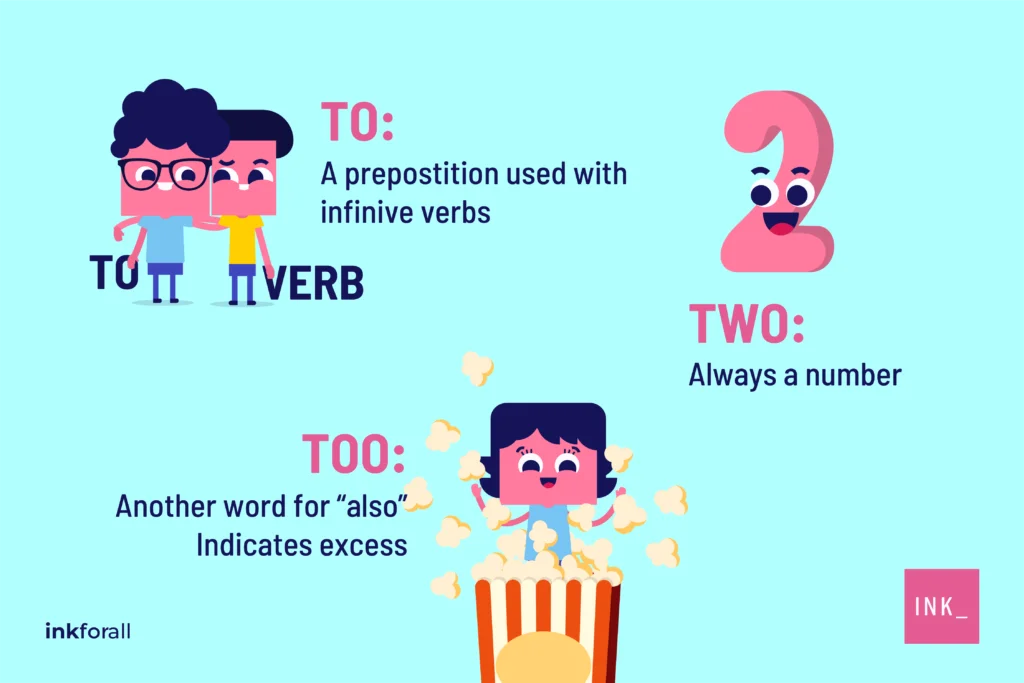

How do you use the Word Too in a Sentence?
Too Sentence Examples:
[/example]There is too much shouting and not enough problem solving.[/example]
To Sentence Examples:
Is it Love you too or to?
If someone tells you that they love you and you would like to say it back, the correct sentence to say is I love you too. This is because too(with two ‘o’s) means also in this complete sentence. However, the phrase I love you might be part of a longer sentence instead of a complete sentence in itself. For example, in the phrase I love youtothe moon and back, you should use to (with one ‘o’). The reason is because the word is part of a longer sentence where to acts as a preposition or infinitive verb.
Is it to Fast or too Fast?
If you’re talking about excessive velocity or speeds, the correct phrase is too fast. In this way, too(two ‘Os’) is an adverb that refers to an excessive amount (of speed). However, if you’re talking about the act of fasting or abstaining from eating, then the correct phrase would be the to fast. In this case, to (one ‘O’) is helping to create the infinitive verb to fast. The third option is Fast is the name of a place. In this case, the to would be a preposition that indicates a direction toward a place called Fast, and the correct phrase would be to Fast.
To vs. Too vs. Two: Test Your Skills
Too Question #1
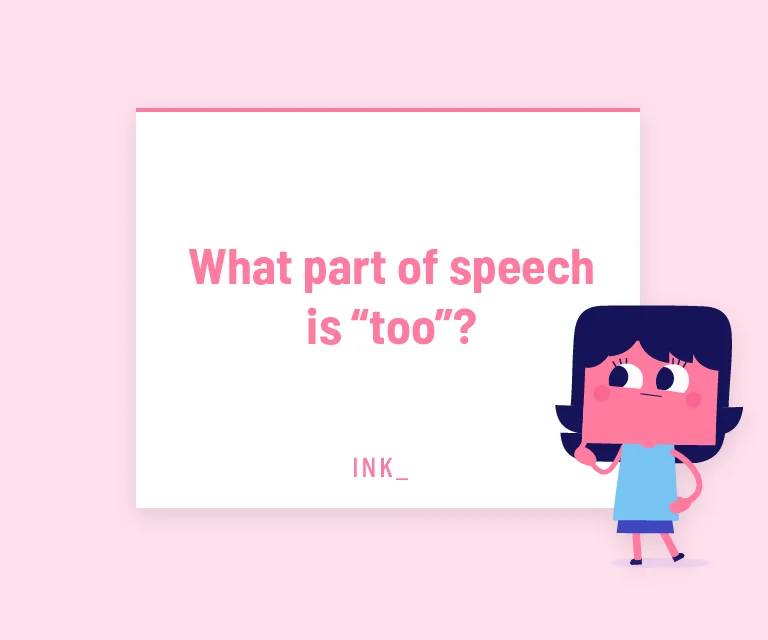

The answer is D. “Too” is an adverb that indicates agreement or an excessive or higher-than-expected amount.
To Question #2
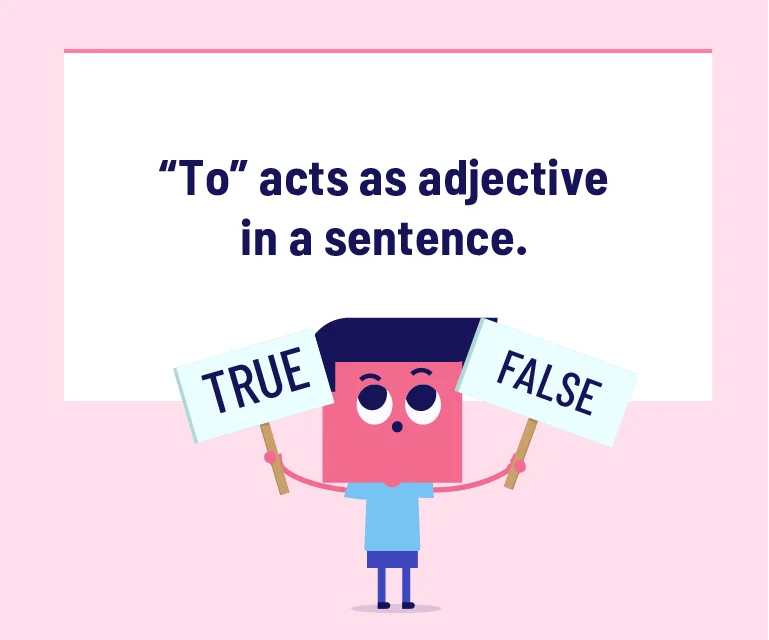

The answer is FALSE. “To” can be a preposition. When it precedes a verb, it can help form an infinitive verb.
To vs. Too Question #3
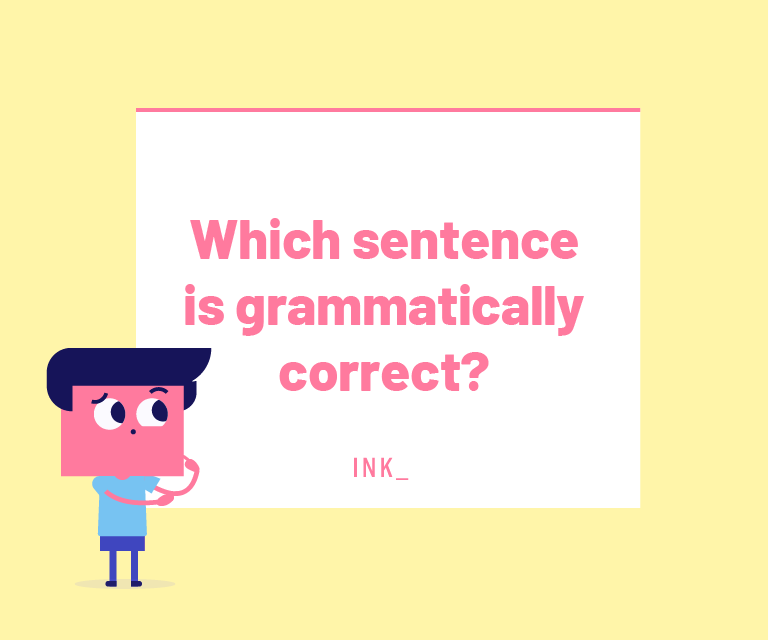

The answer is B. “Too” in this sentence indicates an excessive amount of speed.
To or Too Question #4
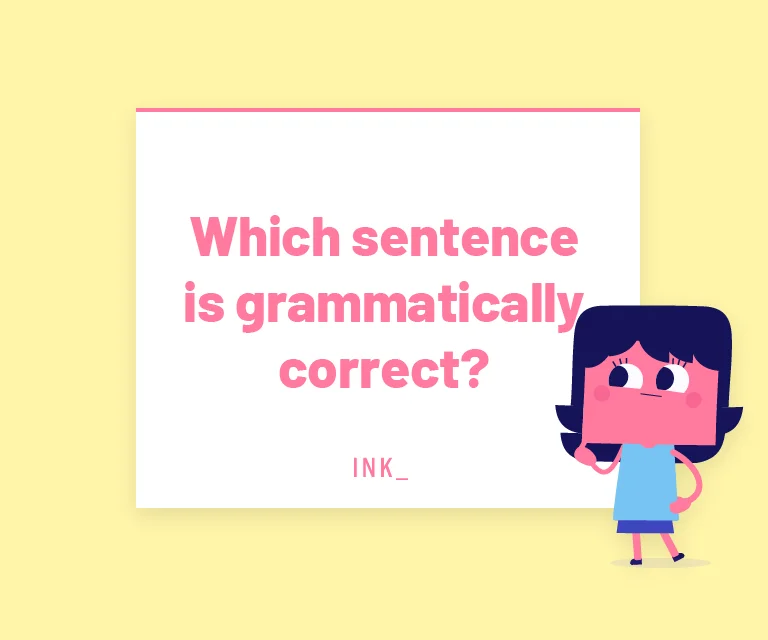

The answer is A. “To” in this sentence acts as a preposition.

When saying, you are too funny. Is this correct? Or you are too mych.
Sorry hit the wrong key on “much”
Hi, Vickie! Thank you so much for your question. This is a super confusing subject. Both “you are too funny” and “you are too much” are technically correct, but they can mean very different things. For example, “you are too funny” has a positive connotation. It means you find the person or something they said hilarious. However, “you are too much” may have a negative connotation. While it can be meant in a light-hearted way, it can also mean that someone has gone over the top or too far. We always want to make sure we answer every question completely, so let us know if we misunderstood your ask. Thanks again for stopping by!
Is it an auntie too many or auntie to many?
It would be “too many”, which is used with countable nouns. Aunts is a noun and you can count how many aunts you have.
In this case, one too many.